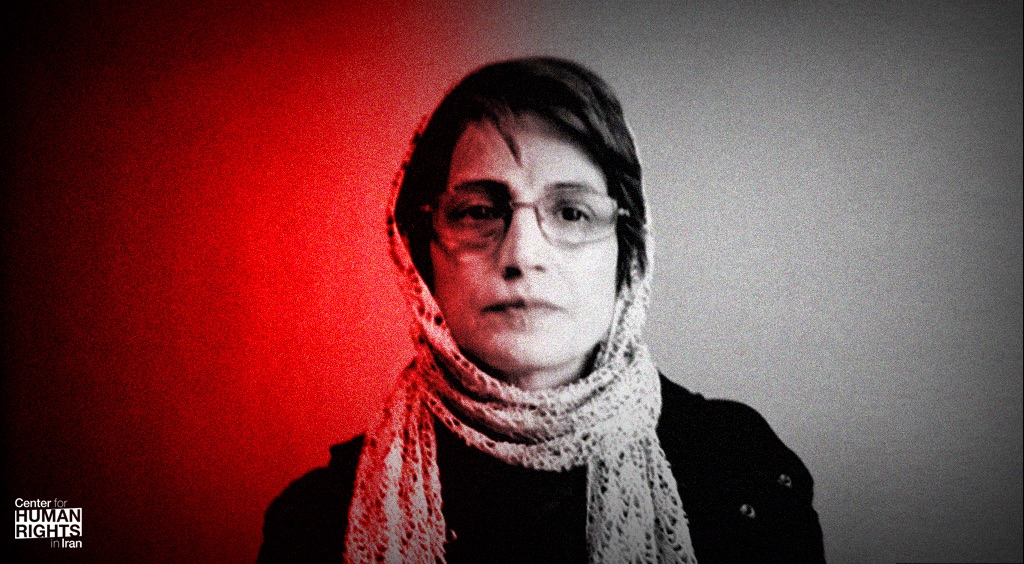Imprisoned Human Rights Lawyer on Hunger Strike Since August 11 to Free Iran’s Political Prisoners

Husband Catches Glimpse as She is Wheeled for Tests: “She does not look well at all”
September 20, 2020—The imprisoned human rights lawyer Nasrin Sotoudeh, who has been on a hunger strike since August 11 to free Iran’s political prisoners, has been hospitalized as of September 19, 2020, with her condition worsening, and the family is being denied access to her and any information on her condition, the Center for Human Rights in Iran (CHRI) has learned, after speaking with her husband, Reza Khandan on September 20, 2020.
“The authorities in Iran may try to hide Nasrin’s dangerous deterioration, but the world is watching and will hold the government responsible for her wellbeing,” said Hadi Ghaemi, CHRI executive director.
Sotoudeh’s husband told CHRI, “Her heart situation is not good at all, they are banning us from visiting her and I cannot go her see her directly.
“I managed to accidentally see her in the hallway as they brought her out for cardiac tests, she was in a wheelchair and I only got a momentary glance of her and she did not look well at all.”
Reza Khandan told CHRI that none of her doctors will speak to him and that she is under stringent guard by security agents.
CHRI is extraordinarily concerned about Nasrin Sotoudeh’s deteriorating medical situation and the egregious violations ongoing right now regarding the authorities’ refusal to allow family visitation and consultation. We urgently call on the authorities to allow the family to see her immediately, to provide the family with full information on her condition, and to allow the family to decide on and give consent for any medical treatment.
Sotoudeh was rushed to the hospital yesterday from Evin Prison, where she has been imprisoned since 2018 for her work as a human rights attorney in Iran. There has been an international outcry for the release of the human rights attorney, which has gathered urgency as Sotoudeh began her hunger strike.
Nasrin Sotoudeh is currently serving a 38-year sentence at Evin Prison for her peaceful work defending basic civil and political rights in Iran, 12 years of which she must serve before becoming eligible for parole. Among her charges were “encouraging prostitution” for advocating against compulsory hijab and defending citizens’ right to peaceful dissent.
In addition to the unjust imprisonment of scores of political prisoners in Iran, many have fallen ill to COVID-19 in Iran’s overcrowded and unhygienic prisons. Iran’s political prisoners were largely left out of the country’s March 2020 mass release of prisoners, which was aimed at stemming the mounting deaths from COVID-19 in the country.
